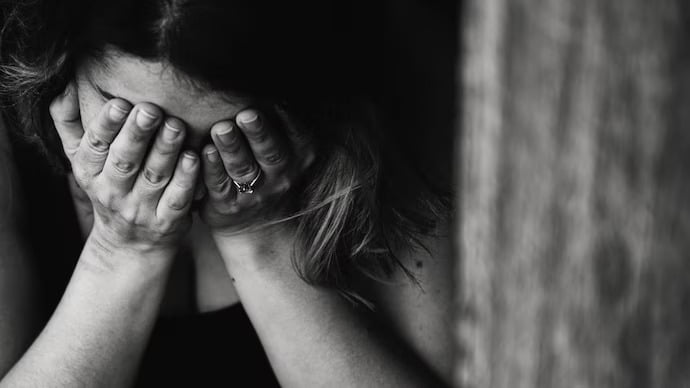All About Grief

When we lose something or someone we care about, it may be extremely painful and may hurt
a lot. That sting we feel within us, is grief. Some people may think grief only shows up after
someone dies. But it’s broader than that. Grief can pop up whenever our normal life changes or
gets twisted around. This includes the loss of connections that define us. You may grieve the
loss of:
● A friend, family member, partner, or pet.
● A marriage, friendship, or another form of relationship.
● Your home, neighborhood, or community.
● Your job or career.
● Financial stability.
● A dream or goal.
● Good health.
● Your youth.
● Fertility.
You may also grieve your own loss of life as you prepare for death. For instance, people
diagnosed with terminal illnesses often grieve no longer having the time to experience or achieve
things they would’ve liked to.
A study from the Indian Journal of Psychiatry shows that roughly 7.3% of people in India
experience complicated grief. This severe grief lasts a long time and impacts how you feel and
act. It can lead to depression, anxiety, and feeling alone, among other problems.
Forms of Grief:
There are many different classifications of grief. The ones we most often encounter and least
often recognize as grief are:
● Abrupt Grief: This form of common grief can occur when any sudden or unexpected loss occurs. For example, job loss, death, or relationship breakup.
● Prolonged Grief: Any grief that stays with you long-term is prolonged grief. It can often interfere with daily life and may be diagnosed as prolonged grief disorder, also known as
complicated grief. In complicated grief, painful emotions are so long-lasting and severe
that you have trouble recovering from the loss and resuming your own life.
● Absent Grief: The absence of feeling grief when you experience devastating loss is also a form of grief. Absent grief can occur when you’re not able to grieve because you are
numbed by shock, denial, or dissociation.
● Delayed Grief: Delayed grief is when you don’t experience grief until long after the loss has occurred. For example, you may not feel the full impact of a loved one’s death until months or even years later.
● Disenfranchised Grief : This type of grief isn’t recognized or validated by others. It happens, say, when a pet dies. The support you get may not be the same as if it were a person.
● Stigmatized Loss: This is when society looks down on your grief. For instance, if a loved one takes their own life, feelings of shame or regret may surface. Many might not grasp the depth of your sorrow.
● Ambiguous Loss: This happens when the loss is not definite. Imagine a loved one disappearing, not knowing if they’re alive or not. This unknown makes grieving challenging.
● Collective Grief: When many people feel upset at the same time, it’s called collective grief. It often happens after a really major bad experience suffered by a group of people together, like natural calamities or an attack on your city. This collective sadness and devastation can be very strong.
● Secondary Loss: Secondary loss means you lose even more things due to the initial,
primary big loss. This could look like someone close to you dying, and as a result you not
having their financial support or their guidance anymore.
● Anticipatory Grief: This means feeling upset before the real loss occurs. It can look like
when you start feeling sad because someone you love is very sick with a terminal
illness and might not get better.
Symptoms of Grief :
Grief can manifest in many ways, and everyone experiences it differently. Some common
symptoms of grief include:
● Shock and disbelief
● Anger and guilt
● Sadness and depression
● Anxiety and fear
● Physical manifestations such as tiredness, feeling sick, and headaches.
It is very important to remember that going through these symptoms is natural and everyone has
their own unique experience with them. However, if it seems like these symptoms have started to
affect your day-to-day functioning, it may be time to get some professional help.
When Should You Ask For Help?
Everyone feels distraught after a loss. This is normal. Yet, if these feelings stay consistent for
a long time, it’s time to get help. There are some signs that can help you identify if you might
need some assistance. These include:
● Your symptoms mess up your everyday routines and functioning.
● You find it hard to cope with the stress from work or school.
● You’re not able to sleep or eat properly.
● You’re often thinking about ending your life.
Finding the Right Treatment
Dealing with sadness and grief comes in many forms. Yet, you can typically find comfort in the
following ways:
● Getting therapy: Sharing your feelings with a professional might provide ways to handle
your grief. Therapy is a space for you to explore these feelings in a safe, non-judgmental
manner which can help you process these thoughts in a healthy way.
● Medication: Some find relief from the symptoms of grief with prescribed medications
for depression or anxiety.
● Support Groups: Taking part in support groups can link you with people who are dealing
with similar situations. Finding a sense of belonging and community can make you feel
heard and less alone.
It’s essential to remember, grief is a normal response to loss. It’s extremely important to allow
yourself healing time. If you’re struggling with grief, remember you’re not in this alone and
help is available for you if you need it.
